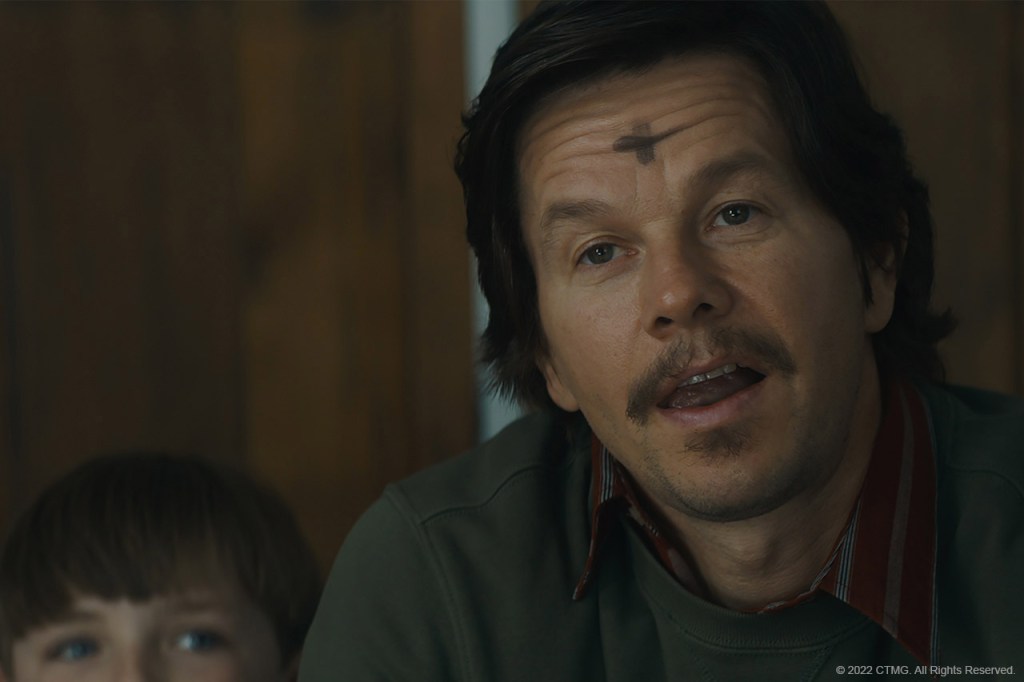Father Stu opened in theaters this Holy Week. It’s a movie about a real-life man who led a depraved and reckless life, found God, became a priest, suffered greatly and died from an incurable disease. And did so — more importantly — with patience and good nature that inspired multitudes of those around him. The film’s message is essentially that suffering has value, and as we sit in the richest nation in history drowning in the highest levels of depression ever recorded, such a reminder could not come at a better time.
It’s a curious thing that so many people are dissatisfied with life when the standard of living has never been higher. In places where freedom has been allowed to flourish, our societal advancements have been remarkable, to the point that suffering — at least physically — in the United States isn’t something many people are forced to endure. Though homelessness is a perennial problem, homelessness rates are at the lowest level on record, and “a vast majority of the homeless population lived in some form of shelter or in transitional housing” according to a 2017 endhomelessness.org study.
A 2021 survey found more than 80 percent of US households “have at least one smart TV (or smart something),” per the National Interest. Case in point: just this week, I witnessed a homeless man in New York City with his head bent in apparent grief. Walking closer, I saw he was actually the next victim of “text neck,” as he was hunched over a smartphone, plugged into an outlet on the street.
Beyond the physical luxuries to which even many of the most impoverished people have access, quality food, healthcare, and other resources are plentiful and cheap, at least for the time being. All of this is to say: from a material perspective, the vast majority of people in America have it really good. In fact, we are the most materially abundant society in the history of mankind. Yet cases of anxiety and depression have risen a shocking 25 percent since 2020.
Of course we know having a comfortable home and a multitude of affordable creature comforts alone does not guarantee happiness (look at all those agonized celebrities). Nevertheless, it stands to reason that not having to worry about foraging for food and shelter every night, and whether a small cut on your finger means infection and sure death, would lead to a less anxious and depressed life. But obviously that’s not the case. Why?
What Father Stu portrays in a poignant way is that human suffering can be profoundly fruitful and even bring about joy, as counterintuitive as that sounds. Stu, played by Mark Wahlberg, spends much of his life doing what most humans instinctively do: he seeks pleasure and avoids pain. Yet doing so does not lead Stu to a more successful, meaningful existence. It is only after a near-death conversion experience that he decides to embrace his suffering — which becomes extreme — and unite it with Christ. Rather than view suffering as a terrible affliction to be avoided at all costs, Stu comes to see it as a gift from God to be used, just like our other, more welcome gifts, to fulfill God’s will and glorify Him. It is in doing this that Stu simultaneously finds peace and transforms innumerable lives along the way.
This spiritualism is a direct challenge to the materialism that has been mainstream for a good century. If the universe is nothing but material, the greatest happiness of man would follow from an optimum state of material wealth; yet here we are, glutted in caloric value, thermal units, McMansions, gadgets, gizmos, medicines, Botox, and beds the size of swimming pools, and the fruit born is anxiety, alienation, and despair.
So perhaps hedonism is not the true purpose of man? Perhaps, as Plato knew so very long ago, the appetites are masters that can never be satisfied and should instead be controlled. Father Stu revives man as a creature who learns through suffering, who blossoms in wisdom, who revels in striving, and who gains purpose through self-sacrifice.
Our world is becoming increasingly hopeless not because we are suffering now more than ever, but because we’ve forgotten how to suffer well. When I consider how much sadness there is in society and the reason for it, I often contemplate what Archbishop Fulton J. Sheen wrote in Life Is Worth Living:
Wars come from egotism and selfishness. Every macrocosmic or world war has its origin in microcosmic wars going on inside millions and millions of individuals.
It appears our society has become collectively more egotistical, more selfish, and less good at suffering. Our modern problems are largely internal and self-induced as we focus our energies on avoiding suffering at all costs in favor of indulging our appetites. We’re unaccustomed to discomfort — especially the younger generations reared on self-esteem — and our virtues have weakened. Whereas true self-esteem springs from conquest over adversity, it is our abhorrence to hardship that leaves the modern psyche so wafer-thin and frail.
There’s a saying about wealth that can be just as accurately be applied to spiritual and emotional prosperity: “The first generation makes it, the second generation spends it, and the third generation blows it.” When I talk to members of the Greatest Generation about what life was like growing up, they shrug and think nothing of a time they had to ration food for the war effort, quit school to go to work, and so forth. Suffering, to them, was an unavoidable part of life that was made less painful when endured dutifully for something — their country — or someone — their family — they loved.
Thus, out of love, they spoiled their children, and Baby Boomers, naturally wanting an even better life for their children, produced a generation prone to blowing the idea of sacrifice being beneficial in favor of anything that provides instant (though fleeting) gratification and an ego boost. (Virtue-signaling is a perfect example of this.) We, as a nation, went from sacrificing for the common good to being triggered, requiring safe spaces, and threatening violence over a changed WiFi password. What Father Stu reminds us, though, is that God loves us so much, he refrains from spoiling us, because it isn’t good for us. He grants us immense blessings mixed with suffering in a way that’s measured out for our own good.
Suffering then, may be a torment, but it can also be a catalyst. Therefore, it should not be viewed as pointless punishment inflicted by a flippant God. Nor is it something that should be feared, make us anxious, or cause despair; when united to the suffering of Christ on Calvary and offered in love, suffering is an opportunity to grow, providing us with purpose and a pathway to heaven, as if we are carrying our own cross. And the more we invest our love outside ourselves, the less onerous suffering becomes, just as a new mother finds nursing her newborn baby at 3 a.m. less of an exhausting chore and more of a bonding experience because of the love she has for her child.
“Sometimes the only way the good Lord can get into some hearts is to break them” (another insight from Venerable Sheen). As our collective national heart seems more shattered than whole these days, let us follow the example of Father Stu to realize the redemptive graces found in suffering and use them to heal our nation.


















